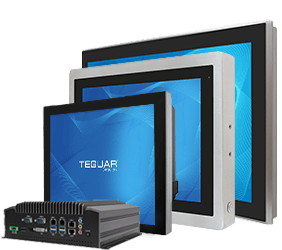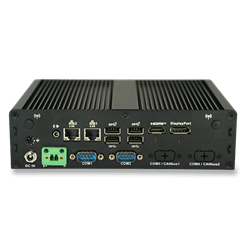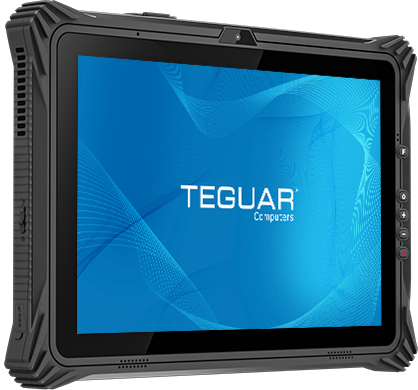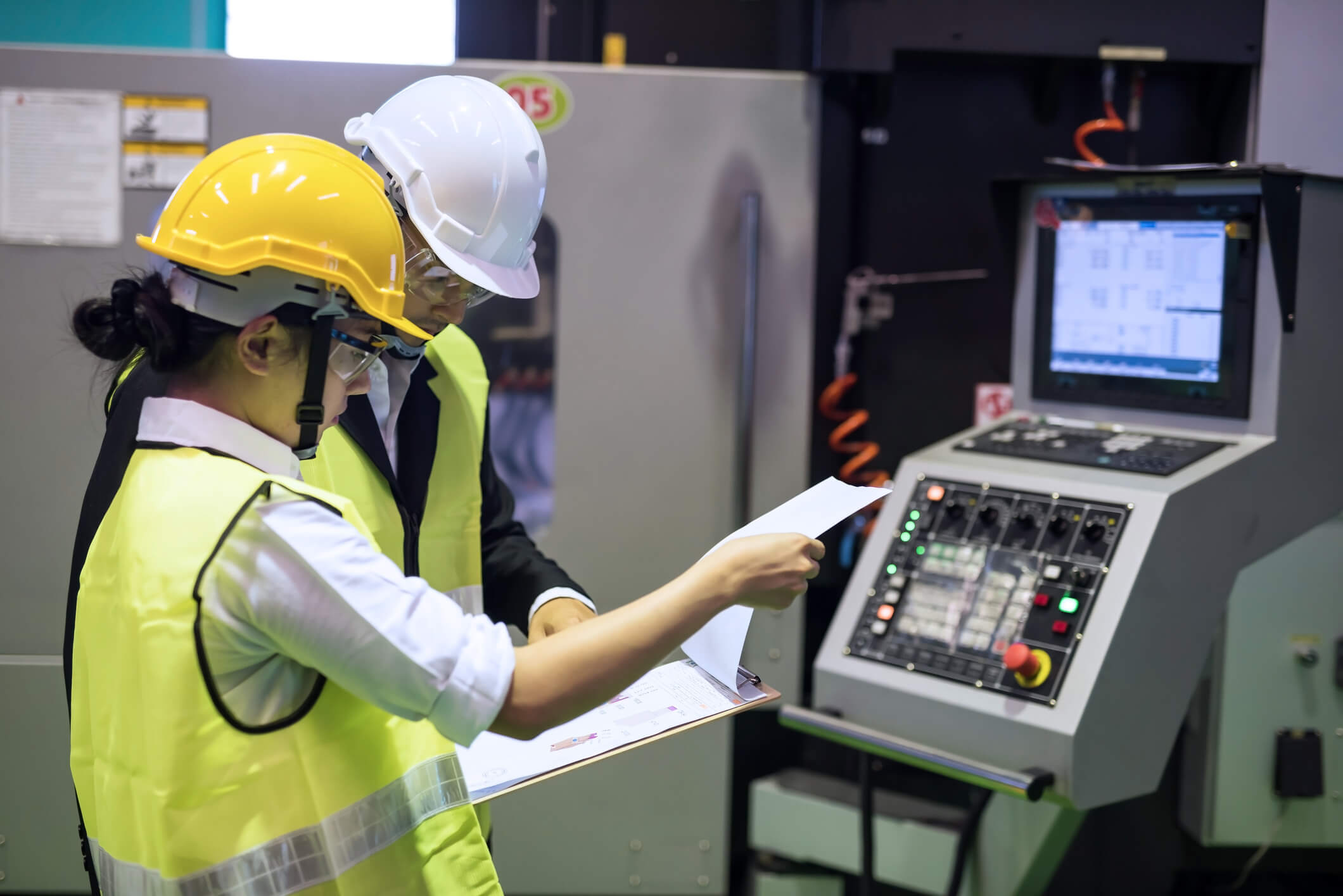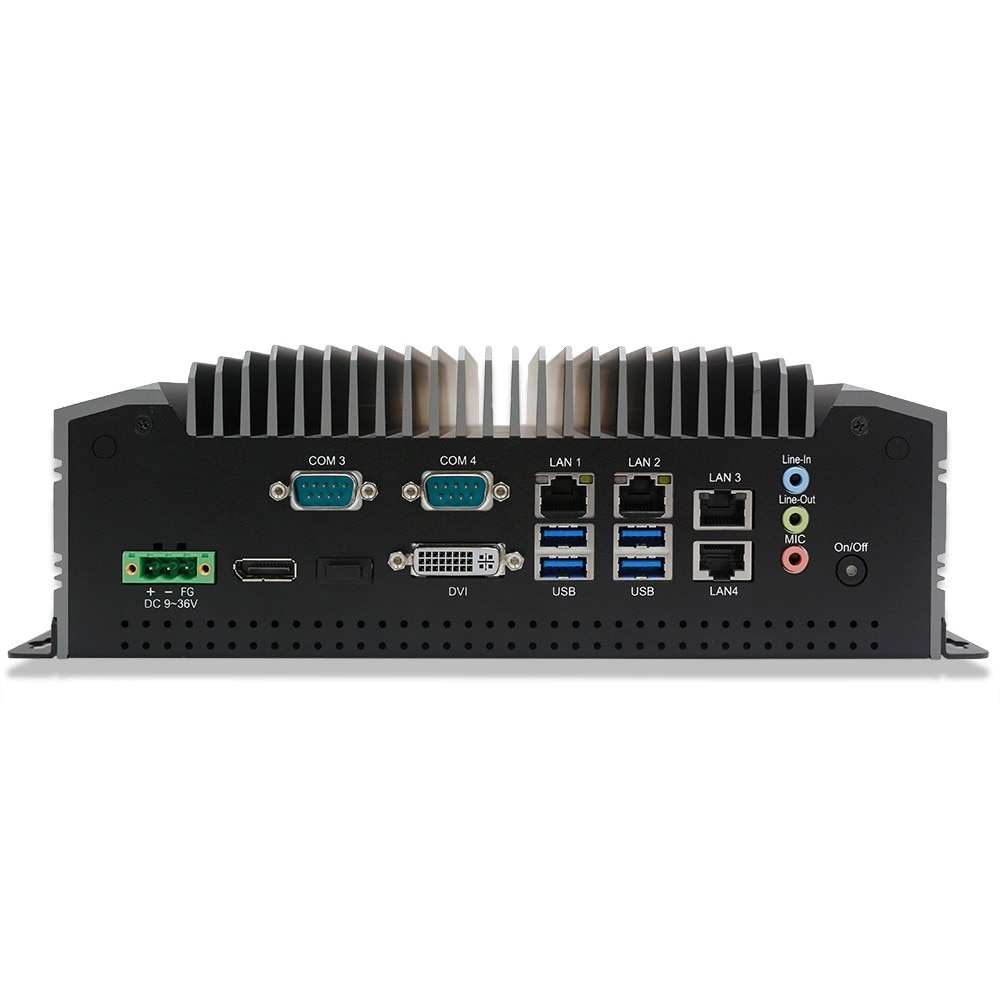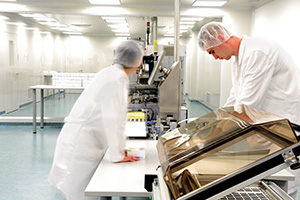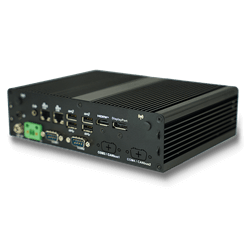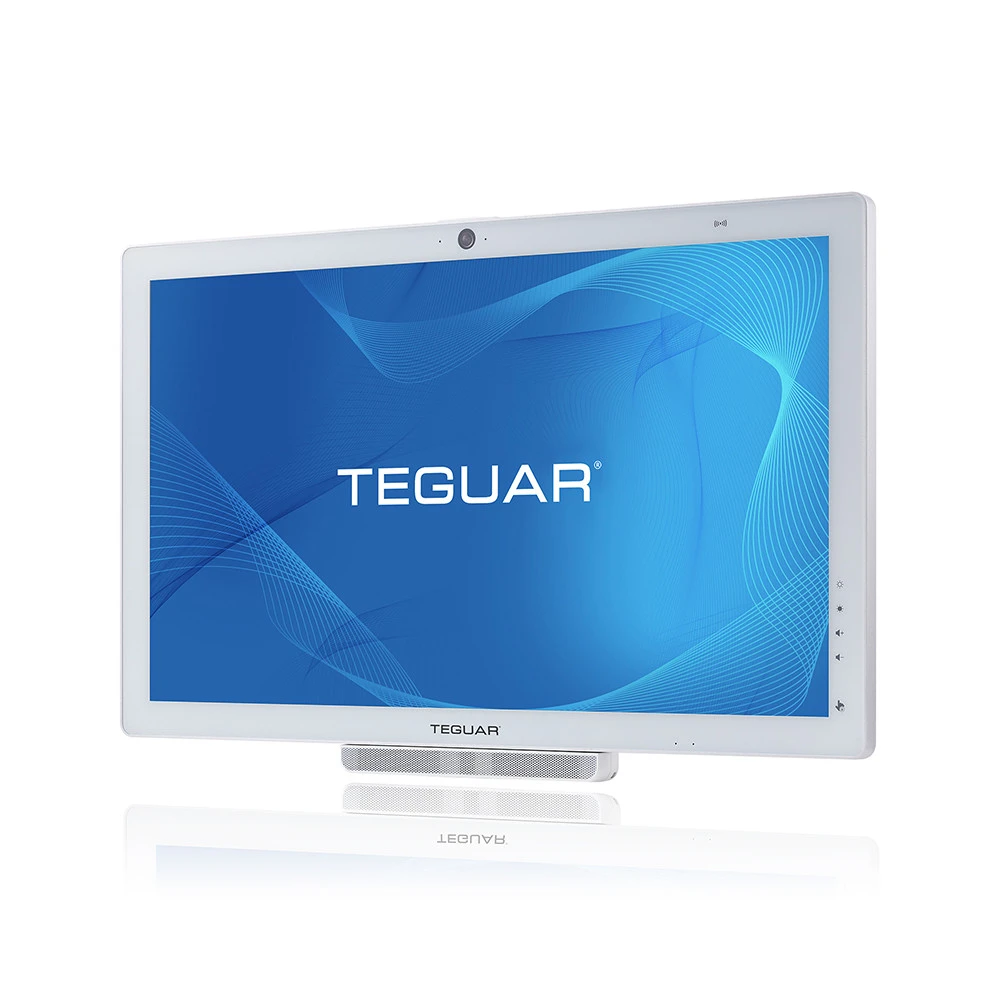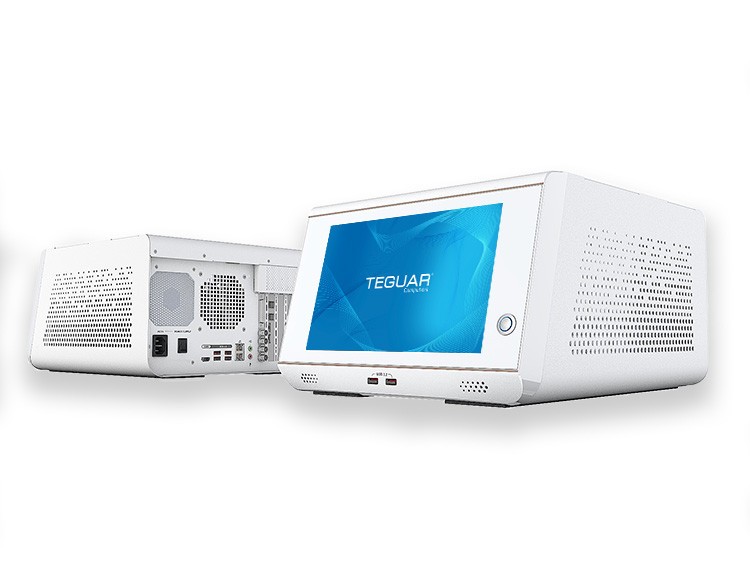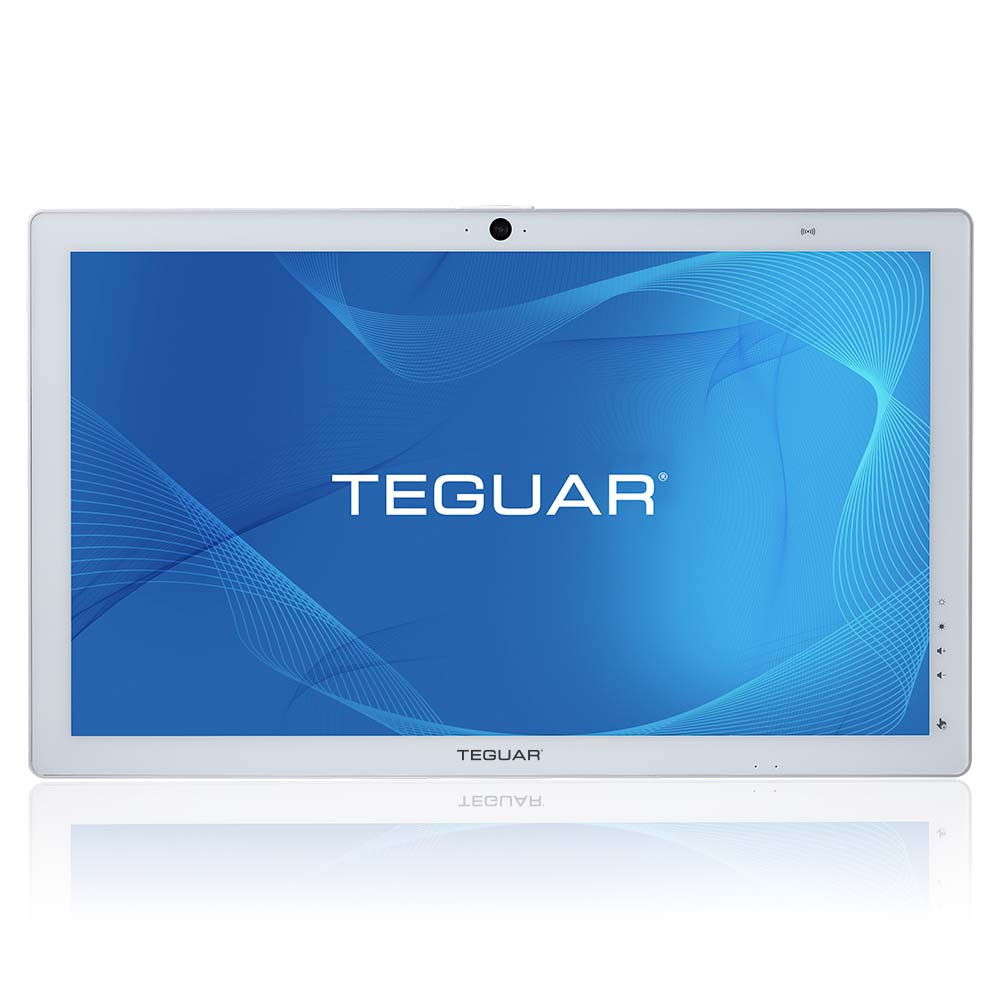Computer Hardware Needs for Edge Computing
Edge computing increases in importance, as we collect more and more data in healthcare, manufacturing, transportation, and more. All of that data needs to be processed somewhere and if you process some of it at the edge, you can improve speed, reliability and security. Read about the benefits of edge computing in our previous article, and if you haven’t already read our introduction to edge computing, we suggest you start here: What is Edge Computing?
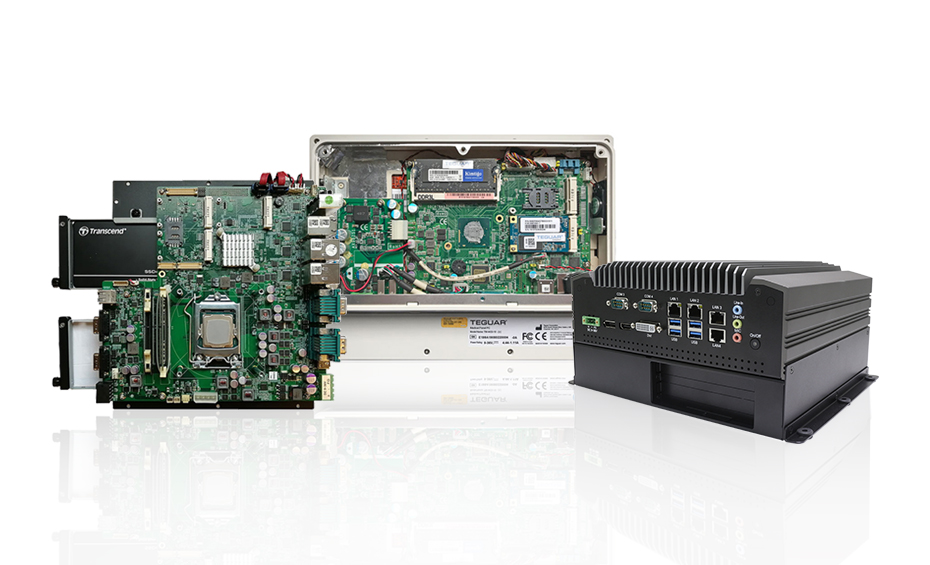
Here are five key requirements for computer hardware used for edge computing.
1. Edge Computers need to be Secure
If you’re trusting the computer to make mission crucial decisions, like in the case of a self-driving car, your hardware needs heightened security measures. Trusted Platform Module is a hardware based security feature that is more secure than software alone. It protects against brute force attacks and hardware theft. TPM, along with security software, should be installed on every edge device, to protect your business data and machine access. Read our article to learn more about TPM.
2. Edge Computers must be High Performance
At Teguar, we separate our computers into high and low performance. Low performance processors (Intel Atom/Celeron) are great for many applications, such as HMI, digital signage, or simple data capturing, but edge computing requires high performance. The Intel Core i series is a high performance group of processors that have more cores and threads, giving them faster processing abilities. Learn more about high performance versus low performance CPUs in our blog.
As discussed earlier, speed is a critical component of Edge Computing and a high performance processor is a big factor in the speed at which your computer can make decisions. When comparing a Celeron CPU (J1900) to a Core i3 CPU (6100TE) with a sample workload of encoding a high definition video, the result is the Core i CPU processing over twice as many frames per second compared to the Celeron. This emulates the processing of images for pass/fail quality inspection. The Core i can process more product in the same amount of time, or it can make the decision about a single product faster, so your production line can run at a higher rate. These types of processes, if run from the cloud, then rely on network speed more than processing speed. Network speed is magnitudes slower than processing speed.
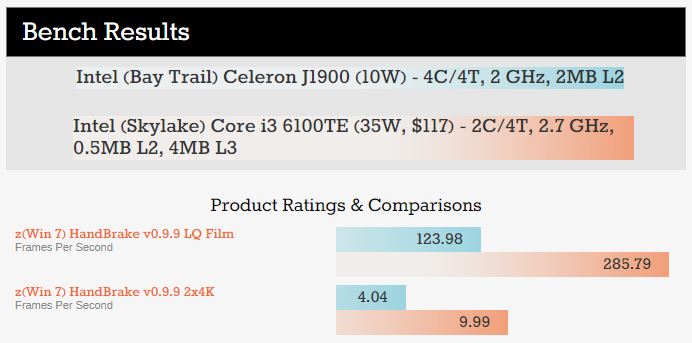
See the benchmark comparison of the Intel Celeron J1900 and the Intel Core i3 6100TE from Anandtech.com.
For split second decision making, you need a high performance processor. You also need storage support that can handle large loads of data and transfer that data quickly.
3. Edge Computers Require Mass Storage
Computers at the edge need more storage than your standard computer. Onboard storage is key to edge computing, because it allows the computer to manage the data, without needing the cloud. Data is passed much more quickly between the processor and onboard storage drive, than between the processor and the cloud.
Solid State Drives (SSD) have higher data transfer speeds and can come in large sizes, such as a 512GB or 1TB, to meet the needs of Edge devices. Many edge computers will have 2x 2.5” SATA SSD drive bays and they can be easily accessible, to make swapping storage drives easy and fast. Another consideration is RAID, as you may want to have the critical data you process at the Edge backed up even prior to sending to the cloud.
4. Edge Computers are Equipped with Lots of Inputs/Outputs
Many applications that use edge computing capture data from numerous and varied devices. Edge computers need to be able to accommodate all these devices. Common I/O ports include USB, because it can transfer data quickly, and LAN. Often times the LAN ports provide power to the end device, this is called Power over Ethernet (PoE). PoE is convenient in systems with lots of peripherals, because it eliminates power cords.
General Purpose Input/Output (GPIO) is also common in edge applications, because it can accommodate virtually any type of peripheral. Sometimes manufacturing or production lines use a legacy device, such as an older generation camera or sensor. If those devices still work, why replace them? GPIO allows you to keep using legacy devices.
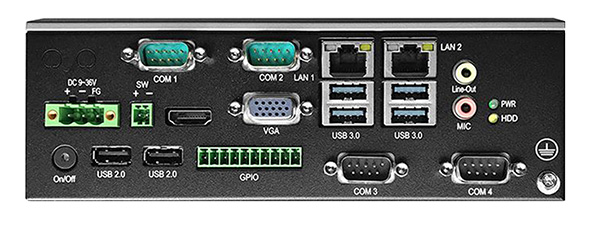
5. Edge Computers need Wireless Connectivity
Last, but not least, computers used at the edge must have wireless connection. Wireless connection can be in the form of WiFi, 3G/4G/5G, Bluetooth, or all of the above. In mobile applications, like railways, cars, and drones, the computer will connect to the cloud wirelessly. In a manufacturing environment, computers may have a wired or wireless network connection.
Even if your system is set up solely with wired connections, your edge computer should still be capable of wireless connection. The future is wireless and you might regret it later, if you install a computer that’s not capable of wireless connection. Get a computer with WiFi, BT, or 4G, because it can accommodate future devices and technology that you may integrate into your system down the road.
Teguar Edge Devices
Teguar carries several computers that make excellent choices for your edge device. The TB-5545-MVS is a high performance box PC with lots of expansion options, the TB-5545-PCIe is another high performing box PC in a compact form factor, and the TP-5045-15 is an all-in-one panel PC with a 2.5” SATA Drive Bay.
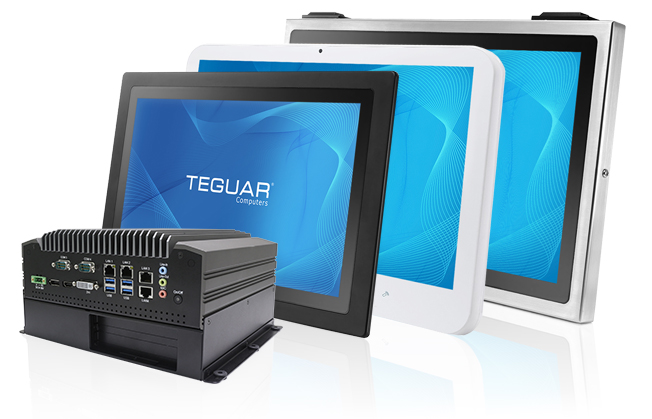
Learn more about Teguar’s edge computers on our application page.
To discuss your project, or request a demo of one of our edge computers, contact one of our sales representatives.
Teguar’s Edge Computing Products
- TB-5545-MVS | Machine Vision System Fanless Box PC
- TB-5545-PCIe | PCIe Embedded Computer
- TP-5045-15 | Touchscreen Panel PC


